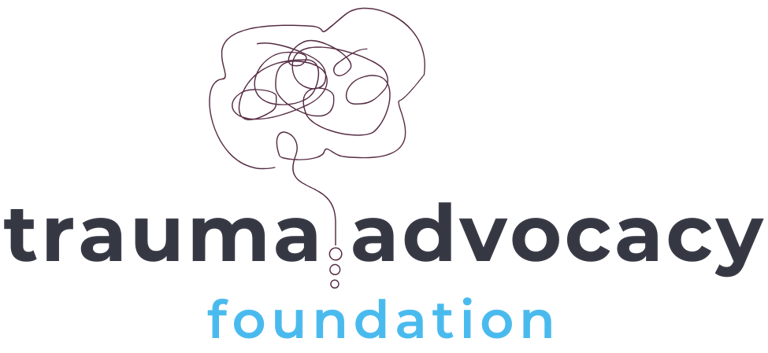
Foundation for Trauma-Informed Advocacy
Protecting the Innocent. Demanding Accountability. Healing Through Advocacy.

Our Mission
The Foundation for Trauma-Informed Advocacy was born from the belief that silence is complicity—and no child should ever be left unseen, unheard, or unprotected.
Founded by Bevin Carter, who spent her childhood in emergency rooms beside her father, a renowned trauma surgeon, the foundation was shaped by the bruised, voiceless children she saw arrive again and again. With no explanations. No accountability. Just silence. That was her first glimpse of injustice—and it shaped everything.
Today, the Foundation works to dismantle systems that perpetuate harm, expose unhealed adults who endanger the innocent, and deliver trauma-informed education, tools, and accountability into every space where children live, learn, and grow.
Because abuse is abuse—no matter how it’s delivered.

OUR PILLARS
Protect. Provide. Prepare.
Protect
We fight for safe, trauma-informed spaces in schools and institutions—because every child deserves physical, emotional, and psychological safety.
Provide
We equip communities, caregivers, and educators with training, tools, and support rooted in neuroscience, compassion, and justice.
Prepare
We help communities anticipate and interrupt cycles of harm by promoting early intervention, accountability, and long-term healing strategies.
Trauma-Informed Advocacy
Empowering voices, confronting injustice, and ensuring every child is seen and heard in our communities.

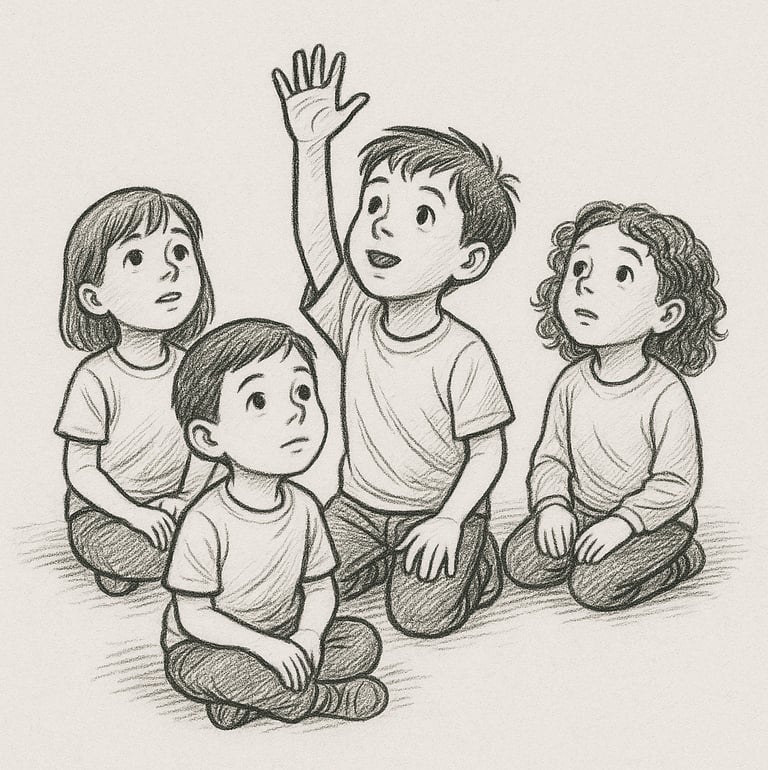

Giving Voice to the Voiceless
In a world where silence often shrouds the experiences of the most vulnerable, it is crucial to give voice to the voiceless. Children and marginalized individuals who have endured trauma may find it challenging to articulate their pain or assert their needs. Advocating for these groups means stepping into the arena on their behalf, ensuring that their stories are heard and their rights are upheld. By creating safe spaces and platforms for dialogue, we can empower these individuals to share their experiences, fostering healing and resilience. Moreover, it is our responsibility as a society to champion policies and initiatives that protect and uplift these voices, enabling them to become advocates for themselves in the future. In doing so, we contribute to a more compassionate world where every individual, regardless of their circumstances, has the right to be heard and valued.
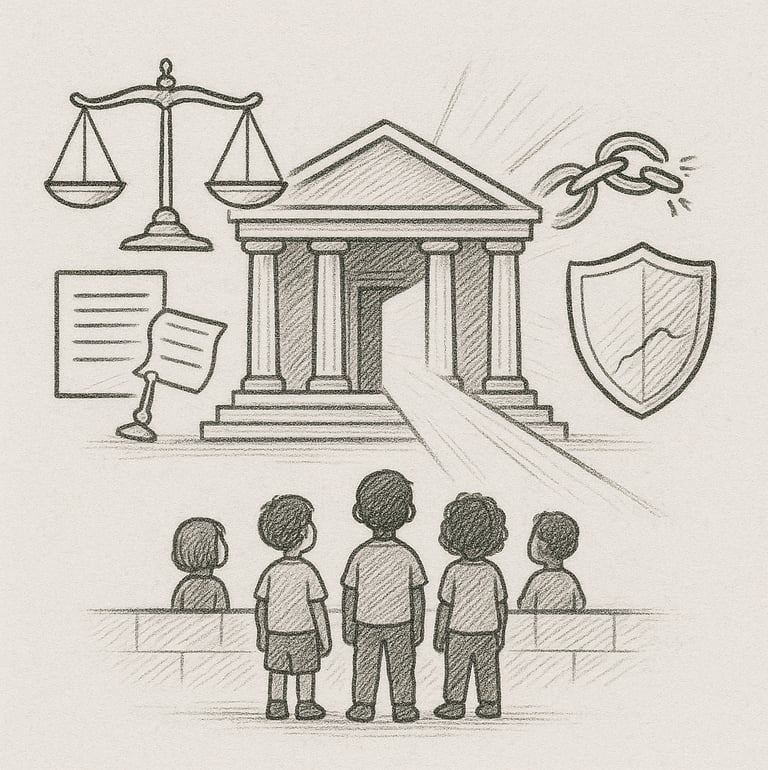

Systemic Accountability
Systemic accountability represents a crucial shift in how we view institutional responsibility, particularly for organizations that neglect their duty to protect vulnerable individuals or silence those who have been harmed. This concept serves as a direct challenge to such institutions, insisting that they can no longer operate above scrutiny without facing consequences. It carries an urgent demand for policy change, emphasizing the necessity for transparency in operations and a commitment to reform in practices. The call for systemic accountability is not merely about addressing isolated incidents; it seeks to dismantle the broader patterns of neglect and obstruction that enable systemic injustices. By holding institutions accountable, we pave the way for a more just and equitable society, where the voices of victims are heard and respected, and where protective measures are consistently upheld.
Empathy + Action
Empathy is a powerful catalyst for change, but it must be paired with actionable steps to make a real difference. It's not enough to simply acknowledge the struggles of survivors; we must actively support them through resources, advocacy, and a commitment to trauma-informed practices. This involves creating safe spaces where individuals can heal, while also implementing policies that prioritize their well-being. Moreover, we have a responsibility to hold those who perpetuate harm accountable for their actions, reinforcing the message that abuse will not be tolerated. By merging compassion with concrete actions, we can foster a culture of understanding and healing, ensuring that empathy translates into meaningful progress for those in need.
Healing with Integrity
Healing with integrity involves a profound commitment to engaging with challenging situations, not as a means to impose quick fixes, but to genuinely witness the stories and struggles of those affected. It’s about acknowledging the complexities of pain and the need for restorative justice. In this approach, individuals enter difficult spaces with deep respect—understanding that every experience holds significance and that healing is a collective process. By naming injustices and standing beside those impacted, we advocate for genuine change and empowerment. Each step taken in honesty and compassion fosters an environment where true healing can occur, rooted in integrity and the shared human experience. In this way, integrity becomes the foundation for meaningful connections and transformative justice, emphasizing the importance of listening and validating each other’s journeys.
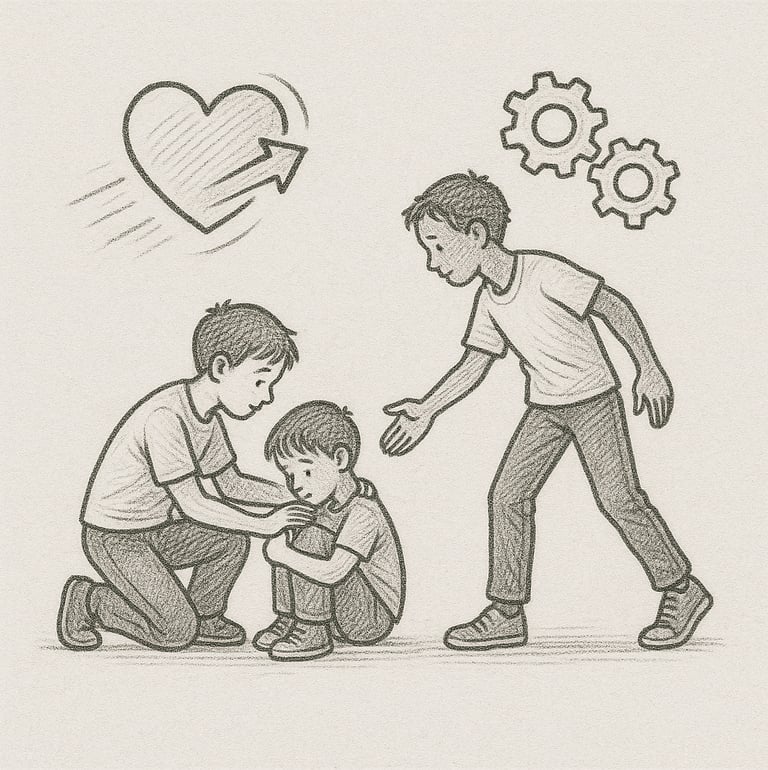

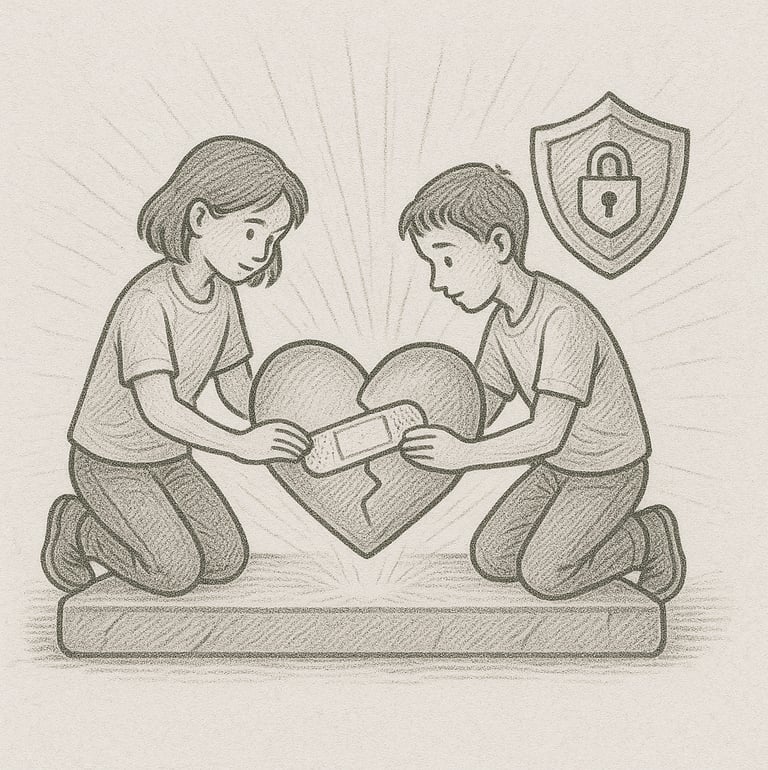

Let’s Work Together
Whether you’re a parent, educator, policymaker, or advocate—we want to hear from you. Join us in building a world where no child slips through the cracks.
